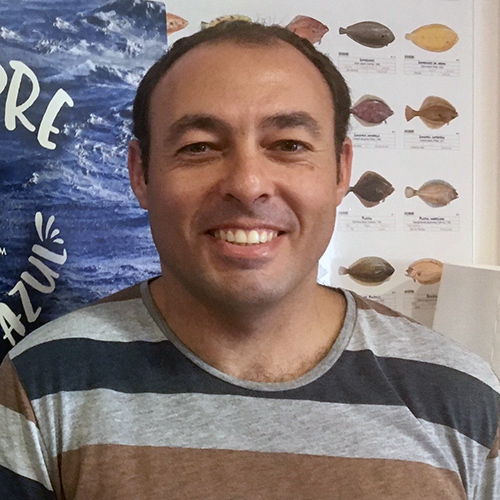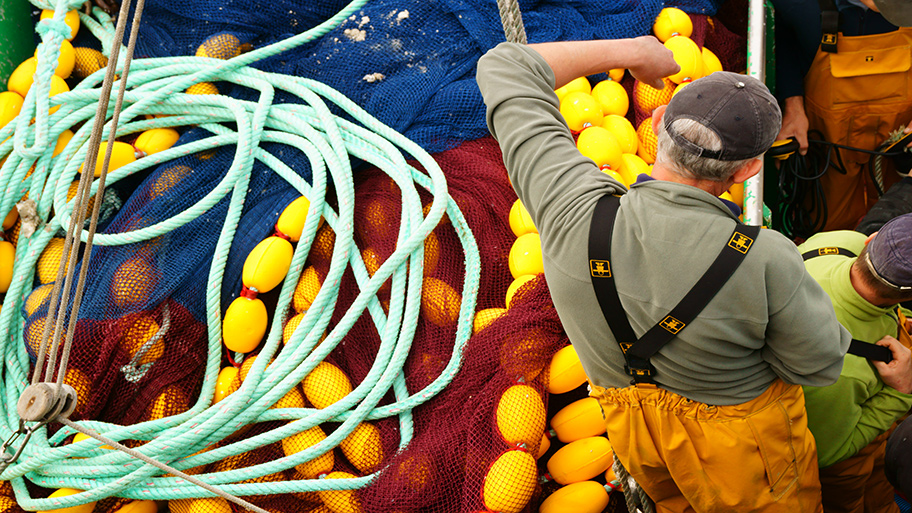Source >>>

Carlos Montero
Senior Accessibility Manager
April 11, 2021
As the global demand for seafood rises and overfishing increases, it is crucial that we ensure all fisheries can access the MSC Program – regardless of size, gear type and location.
 Fisher with ropes and net ©MSC
Fisher with ropes and net ©MSC
The number of fisheries engaged with our program is increasing, however, small-scale fisheries account for only 18% of all fisheries certified to the MSC Fisheries Standard or currently in assessment.
We know how important it is for small-scale fisheries to operate sustainably and want to do more to help these fisheries to use our Standard and benefit from MSC certification. To make sure we are safeguarding seafood supplies for future generations, we are committed to engaging over a third of global marine catch with our program by 2030. But we can only achieve this if fisheries of all sizes can use our Standard.
To help achieve this, we commissioned an independent review of our program to understand how it applies to small-scale fisheries. This included a review of our assessment and certification process, the value gained from certification and the MSC ecolabel, and small-scale fishery engagement. We also carried out an internal analysis that, together with the recommendations from the review, identified key aspects of our program where developments or new initiatives could help us to engage with more small-scale fisheries.
Environmental and economic importance
Small-scale fisheries typically use small vessels and low-mechanised fishing methods. Despite their size, these fisheries can still have a significant impact on the oceans as they can interact with key habitats central to the life-cycle of many marine species. There are numerous species which are targeted by small-scale fisheries and which play a fundamental role within the ecosystem. It is clear that sustainable management of these fisheries is vital to protect biodiversity.
Small-scale fisheries also provide a major source of employment, income for local economies and food security for millions. These fisheries constitute around half of all global seafood caught annually and provide communities with a vital source of nutrient-rich protein. Over 90% of all those working globally for fisheries are employed by small-scale fisheries.
Supporting small-scale fisheries
Our Standard is complex, reflecting the intricate nature of fishery management. This can mean that well-managed small-scale fisheries face challenges in demonstrating that they meet our Standard, often due to a lack of scientific data on their environmental performance .
Over the years, we have developed initiatives to support these fisheries and help them to meet our Standard. Many data-limited fisheries have successfully used our Risk-Based Framework to assess their impacts on the species they catch and on habitats and ecosystems. The Risk-Based Framework uses information provided by fishery stakeholders in workshops, and all available data to understand the impact of the fishery. In 2016, the Western Asturias octopus fishery became the first octopus fishery to achieve MSC certification after using the framework to understand stock populations.
Many small-scale fisheries use traditional or informal practices, but this doesn’t mean they aren’t well-managed. We provide guidance for our independent assessors to help them evaluate sustainability in these fisheries. The Ben Tre clam fishery in southeast Vietnam harvests clams by hand and is operated by local community members who have formed a cooperative. In 2009, this fishery became the first in Southeast Asia to achieve MSC certification.
Through our Pathway to Sustainability, we are also committed to supporting fisheries who are not yet operating at a level that meets our Standard, but are making improvements and aim to become certified.
Evolving our program
While our tools and training programs are benefitting many fisheries worldwide, it is important that we continue to evolve our program so that we can engage with even more small-scale fisheries.
We regularly review our Standards to make sure they reflect the latest science and best practice, and address stakeholder concerns. A core part of the current Fisheries Standard Review is to make our Standard more accessible to small-scale fisheries. This includes streamlining requirements, clarifying language and developing further guidance to make our Standard easier to interpret.
Market forces are a key incentive for fisheries to become certified, though factors such as challenging supply chain logistics can limit the benefits of certification for small-scale fisheries. We want to better understand the difficulties small-scale fisheries face in accessing the market and identify adaptive solutions.
We will also invest in dedicated efforts to strengthen our capacity building training program through the development of new tools, models and training materials. This will enable more small-scale fisheries to develop the technical knowledge needed to improve the sustainability of their fishing operations.
We also intend to expand our intervention in the pre-certified and fisheries improvement spaces through our Pathway to Sustainability framework. The Pathway provides tools and programs to support fisheries making improvements and benefits fisheries worldwide, with a particular focus on small-scale fisheries and those in the Global South – although not exclusively these types of fisheries. This includes our In-Transition to MSC Program, which was launched in 2019. The program provides a way to independently verify a fishery’s progress against an improvement action plan on an annual basis, helping them stay on track to achieve certification within five years or less.However, providing fisheries with tools and training is not enough to drive change on a larger scale. We know how important it is to generate the infrastructure that supports fisheries in adopting sustainable management practices. Collaboration is key to achieving this and we will continue to work with governments, fishery improvement stakeholders, supply chain operators and others to make sure small-scale fisheries are supported in becoming sustainable.
You can read our report ‘Engaging with small-scale fisheries: Findings and next steps to enhance the engagement of small-scale fisheries in the MSC program’ to find out more.

